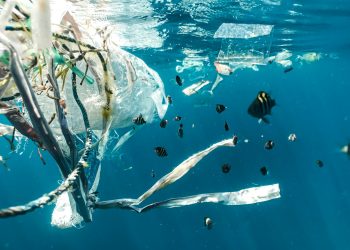Sustainable Living Practices: A Blueprint for a Better Future

We are standing at a crossroads in human history—where our future hinges on the choices we make today.
The climate crisis, cascading biodiversity loss, and dwindling resources have presented us with an urgent challenge: to rethink and redefine how we live. But this transformation isn’t just about swapping plastic straws for bamboo ones; it’s about a deep, systemic shift in values and priorities, both personal and global.
The Personal Journey: Awakening to Sustainability
Several years ago, I attended a recycling workshop that shook me to my core. While most participants asked about paper, plastic, and cans, I found myself frozen by the statistics. Did you know that the average person generates roughly 4.5 pounds of waste per day? That moment ignited a quest to understand how I could live differently, not just for myself, but for the larger world.
Shifting to plastic-free alternatives was merely the tip of the iceberg. I began composting, growing herbs in my apartment, and using public transport exclusively. It wasn’t easy; I encountered skeptics who labeled these efforts as ‘token gestures’ and questioned their efficacy. Yet, these small acts became daily affirmations of hope—a tangible antidote to the apathy caused by overwhelming global problems.
Broadening the Scope: The Economics of Sustainability
It’s not enough for individuals to embrace sustainable practices; businesses and governments must step up. Take the circular economy—an economic system designed to eliminate waste and continually reuse resources. Philosopher Ellen MacArthur popularized this idea, noting its potential to catalyze not only environmental benefits but also economic growth. Imagine a system where clothes are rented rather than purchased, or smartphones are designed to be easily upgraded rather than discarded.
Yet adopting these principles challenges entrenched paradigms. For example, the mythology of endless growth—embedded in modern capitalism—clashes directly with ecological limits. By questioning the narrative of consumerism, we pave the way for alternatives that balance profit with planetary well-being.
Future Trends: Technology Meets Sustainability
Artificial Intelligence (AI) is set to revolutionize sustainable practices in ways we’ve barely begun to comprehend. Predictive algorithms can optimize energy usage for entire cities, while blockchain-based systems can create unparalleled transparency in supply chains.
Imagine smart homes where appliances only function when needed, or vertical farms that use advanced sensors to produce food with minimal land and water. These advancements point toward a paradigm shift where technology isn’t the enemy of nature but its ally. However, we must remain vigilant to ensure these solutions are accessible globally rather than deepening the digital divide.
Practical Steps for a Sustainable Lifestyle
-
Reduce and Reuse:
Begin auditing your waste and find ways to repurpose items you might throw away. -
Community Engagement:
Join local sustainability initiatives or host workshops to share practical tips. -
Energy Savings:
Switch to renewable energy sources for your home or workplace, if available. -
Conscious Consumption:
Choose businesses that prioritize ethical practices and sustainable materials. -
Invest in Learning:
Read books, attend seminars, and engage in conversations about eco-conscious innovation.
Each of these steps might feel small in isolation, but collectively, they can create ripples that transform communities.
Sustainability and Philosophy: Rethinking Our Place
Between the teachings of ancient Stoics and the ideas of modern existentialists lies a profound truth: our shared humanity links us to one another and the Earth. Sustainability, at its core, is a philosophical practice—a meditation on interdependence.
Marcus Aurelius spoke of considering the “whole,” not just oneself. Today, this ancient wisdom propels us forward into a world where personal actions reverberate globally. By living sustainably, we resist the urge to act as though humans are separate from nature, reclaiming our place within an interconnected web of life.
Calling for Action: Build the Future Today
The question is no longer whether sustainable living is necessary—it’s how we make it the norm. Start by examining your habits, challenging them, and committing to change. Advocate for systemic reforms. Work to drive policy changes at local and national levels. Sustainability is not a battle to be fought alone; it’s a shared responsibility demanding collective effort and imagination.
Every decision we make today shapes tomorrow. Perhaps the real measure of success won’t come from achieving personal perfection, but from sparking collective action. Transformation may start on your own kitchen counter or bike commute, but its ripple effects could alter the trajectory of human history.











